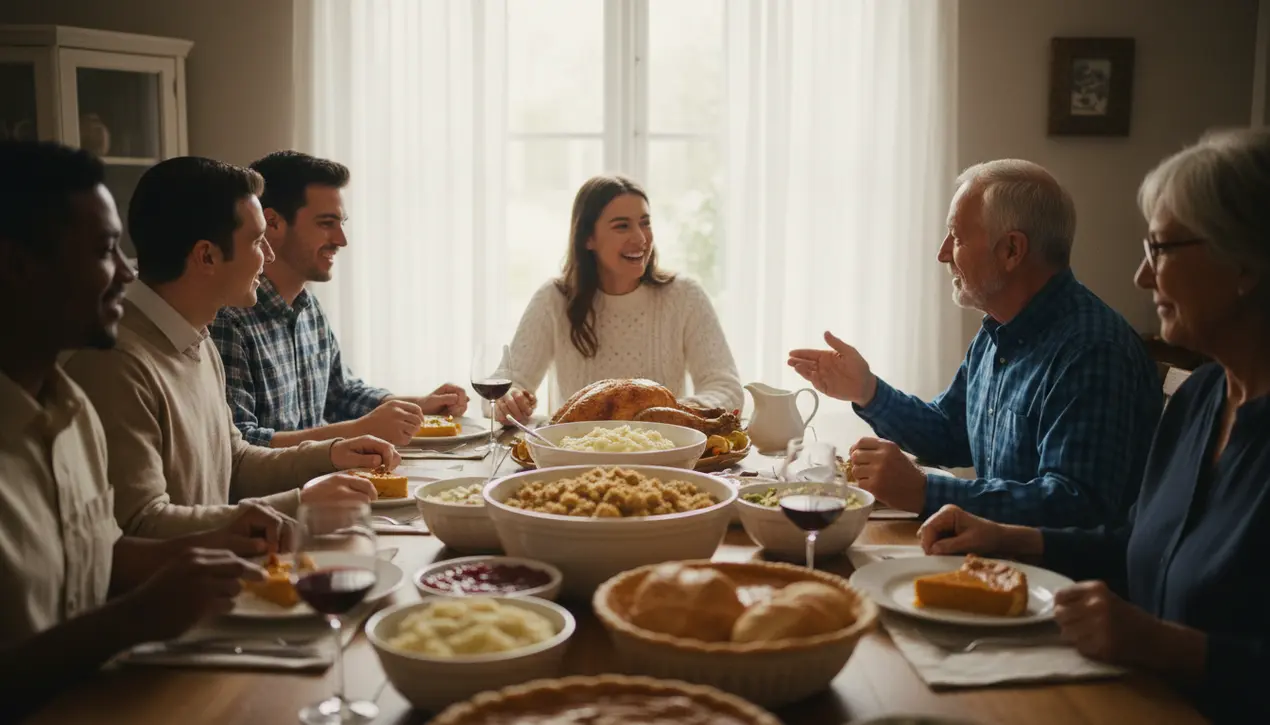
Politicsgovernments & cabinetsPublic Statements
No, you probably won't fight about politics at Thanksgiving
LA
Laura Bennett
11 hours ago7 min read
As families across America prepare to gather around Thanksgiving tables, there's a quiet but significant consensus emerging that might surprise those who assume our politically fractured nation inevitably brings its battles to the dinner table. According to a recent YouGov poll conducted among 1,120 U.S. adult citizens between November 14-27, 2025, only 11% of respondents actually expect political arguments to disrupt their holiday celebrations.This finding feels particularly poignant when you consider how we've been conditioned to anticipate these gatherings with a certain dread, bracing for the uncle with strong opinions or the cousin with opposing views. I've spoken with dozens of people about their holiday expectations this year, and there's a palpable weariness with conflict, a collective decision to prioritize connection over confrontation.One woman in Ohio told me, 'After everything we've been through as a country, we're just tired of fighting. The mashed potatoes taste better when we're not shouting.' This sentiment cuts across demographic lines in fascinating ways—while 19% of Democrats anticipate potential clashes compared to just 9% of Republicans, the overwhelming majority in both camps are planning for peace. Regional differences tell their own stories too: the Northeast shows the least expectation for arguments at just 7%, while the West, perhaps reflecting its more diverse political landscape, registers at 16%.What's most revealing is the generational divide—younger Americans are more likely to anticipate political friction than their elders, with only 3% of those 65 and older expecting arguments. This suggests that older generations, having navigated more Thanksgivings through various political climates, have either perfected the art of avoidance or simply place different value on what these gatherings represent.When we look back at previous years, the numbers tell a story of gradual de-escalation—last year, 14% expected arguments post-election, while in 2023, when asked if arguments ever occur at their celebrations, 16% said yes. The year before that, 19% reported actual political arguments had taken place.This downward trend, however slight, hints at a national learning curve, a collective development of strategies to preserve family harmony. Perhaps we're getting better at reading the room, or maybe we're simply recognizing that some bonds transcend political affiliation.The real story here isn't just about avoiding conflict—it's about what we're choosing to focus on instead. The same poll reveals that over 30% still expect politics to come up in conversation, but the crucial distinction is that these discussions don't have to devolve into arguments.This suggests a maturation in how we approach disagreement, a recognition that differing opinions can coexist without threatening relationships. As one father from Texas explained, 'We've learned to listen more and lecture less.The goal isn't to change minds but to understand each other. ' This Thanksgiving, it appears Americans are making a conscious choice to protect their sacred spaces, to shield their family traditions from the polarization that dominates so much of our public discourse. The turkey may be stuffed, but it seems our capacity for political arguments at the dinner table is not.
#Thanksgiving
#politics
#family gatherings
#polls
#American traditions
#featured
Stay Informed. Act Smarter.
Get weekly highlights, major headlines, and expert insights — then put your knowledge to work in our live prediction markets.
Related News
Comments
Loading comments...
© 2025 Outpoll Service LTD. All rights reserved.